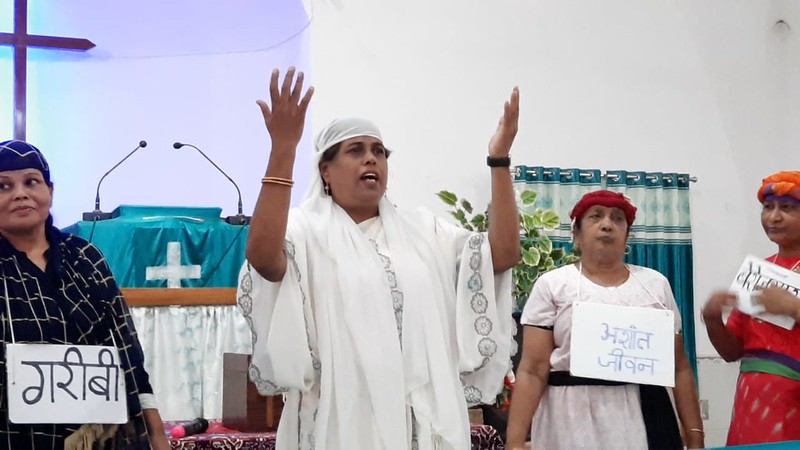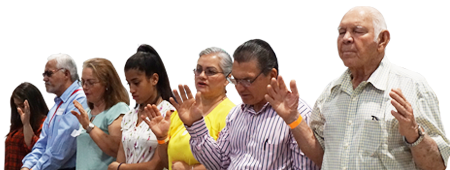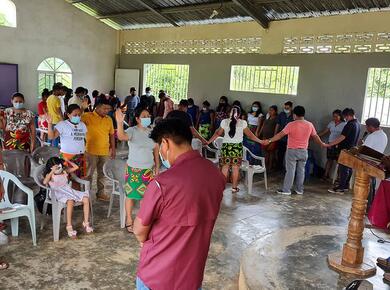Posted: August 26, 2022
Reading: Matthew 5:3-20
In June 1981, our family moved to Cochabamba, Bolivia, where my parents were to teach in a Baptist seminary that wanted more Anabaptist input.
We arrived at a particularly raucous point in Bolivian history. In July 1980, Luis García Meza, a commander of the Bolivian army, led a coup d’etat, initiating a brutal Pinochet-style regime. Meza only ruled for about 13 months: due to pressure from the international community, he was forced to resign in August 1981. His friend and fellow army general, Celso Terrelio, succeeded Meza with almost an equally repressive rule.
Like other dictators, García Meza introduced a “banned book list.” This move was an attempt to squelch that which could potentially influence people’s thinking, which could also then challenge his rule. Interestingly, Meza included Matthew chapters 5-7 – the Sermon on the Mount – in this “banned list” of books.
The problem, of course, was that my father was supposed to teach the book of Matthew. This led to many significant conversations within the seminary. Would they listen to the government and therefore focus on another book of the Bible? Would they plan to teach Matthew but skip over these three chapters?
They eventually decided to ask the foreigner to teach the course (including the Sermon on the Mount)!
But this came with risks, especially as Meza’s government actively silenced the voices of those whom it perceived as challenging the narrative that it sought to instill. In fact, Meza’s chief repressor Colonel Luis Arce who served as the Minister of Interior cautioned all Bolivians who opposed the new order by saying that they “should walk around with their written will under their arms!”
Why would a dictator want to ban these three chapters? Why did he find these chapters threatening?
There have been interpretations of the Sermon on the Mount that do not challenge power.
When my wife and I served as youth pastors, The 700 Club, a weekday American television program made its way onto televisions screens in our little area of southern Ontario (Canada). Airing since 1966, it describes itself as “a news/ magazine program that has the variety and pacing of a morning show…. It also features indepth investigative reporting…[and] covers major events affecting our nation and the world.”
One day, out of curiosity, I watched a program that focused on Matthew 5:13-16.
What I found striking about the host’s explanation was the way in which he interpreted the categorical statements of Matthew as though it was speaking to American Christians.
You are the salt of the earth… You are the light of the world…
Americans, he suggested, had an obligation to share about the American way of life. This Godordained American way of life, with its emphasis on freedom, economic prosperity and of course democracy provides an example to the rest of the world, according to the host. It offers, the host suggested, American hope that provides flavour and light for the rest of the world.
This program demonstrated how easy it is to interpret the Sermon on the Mount, and the biblical story in general, as an expression of Manifest Destiny, which is itself a product of nationalism. The Western missionary enterprise, notes the late South African missiologist David Bosch, assumed the superiority of Western culture and that God has chosen Western nations as standard bearers.1 “The nation-state,” he argues, “replaced the holy church and the holy empire.”2
Kelly Brown Douglas – a Black, womanist theologian in the United States – depicts this mindset as “American exceptionalism,” grown from seeds of the white, Protestant, Anglo-Saxon myth. “The ‘city on the hill’ that the early Americans were building,” she says, “was nothing less than a testament to Anglo-Saxon chauvinism,”3 that shaped democracy though a particular perception as to how the country should be structured defined by race;4 the repercussions of which we continue to see today.
Part of the issue – as my students at university hear often – is the tendency to not take the socio-political context or the literary context into consideration when reading and interpreting Scripture. The host of The 700 Club, for example, assumed the “you” in the “you are the salt of the earth… You are the light of the world…” to refer to him and/or American Christians as Americans.
But, if we pay attention to the text and the flow of Jesus’ words, the “you” refers to the final Beatitude: “you who are persecuted for my sake” (Matthew 5:11). It is those “you” who will function as salt and light in this world.5 It turns this passage into a revolutionary and subversive tool.
Jesus is very clever in his preaching style. Note how Jesus highlights a different logic. Those who are “blessed” are the ones who typically would not have mattered in society (the poor, the meek, the merciful). They are the ones who do not first come to mind (those who mourn, those who are pure in heart, those who are the peacemakers).

Remember that the type of blessing Jesus talks about is not something passive that one simply receives, but rather is active and impels people to get up and move. The Beatitudes highlight an alternative logic that moves away from the desire toward seeing ourselves as “exceptional” precisely because that would then replace God who is the very source of exceptionality, salty flavour and light in our world
It doesn’t seem as though Jesus encourages us to determine who is salt and who is not, or who is light and who is not. Rather, Jesus makes these categorical statements as a way to describe when someone serves as salt and light; when someone embodies Jesus’ alternative logic.
What’s more, Jesus’ use of “you” – “you are the salt of the earth… You are the light of the world…” – moves away from an individualized understanding and highlights the corporate nature of this claim. As New Testament scholar Douglas Hare notes, “You are salt, yes, but for the earth, not for yourselves. Likewise you are light, but for the whole world, not for a closed fellowship.”6
The “community as a whole is challenged to fulfill its corporate mission of serving as salt and light for the world…. It is one we must work at together.”7
When we adopt Jesus’ alternative logic as our vision and embrace our communal walk to participate in it, we liberate ourselves from narratives that destroy, demean, exploit and exclude. In other words, we listen to the voices of those who are oppressed, poor and marginalized precisely so that we may hear God’s cry. Things are not as they should be; we must continue to struggle to make things right. Jesus’ logic challenges the clamour of other narratives that seek not only our attention, but our allegiance.
In standing up to these other narratives, narratives that seek to maintain “exceptionalism,” cause injustice, and create systems of oppression we embody an emancipatory politics. This term from Jacques Rancière (a French philosopher) means a form of politics that ruptures and disrupts the “what is” with the “what can be.” In other words, it challenges systems that perpetuate death, exclusion and violence, exposing the contingencies on which they rest, and reasserts an alternative political agency that embodies the future God desires in and for this world.
At the end of teaching the book of Matthew at the Baptist seminary in Bolivia, my father asked whether Luis García Meza, the Bolivian dictator, was right in banning Matthew chapters 5-7. The students all responded with a resounding “yes!” These chapters provide the seeds of a revolutionary logic that would challenge Meza’s – or any dictator’s – rule.
Jesus invites us to participate in a community called to resiliently embody Jesus’ subversive and revolutionary logic of liberation in our world.
—Andrew G. Suderman is secretary of the Peace Commission, Assistant Professor of Theology, Peace, and Mission at Eastern Mennonite University, Harrisonburg, Pennsylvania, and the Director of Global Partnerships for Mennonite Mission Network.
1. David Bosch, Transforming Mission: Paradigm Shifts in Theology of Mission (Maryknoll: Orbis Books, 2004), 298.
2 David Bosch, Transforming Mission, 299.
3 Kelly Brown Douglas, Stand Your Ground: Black Bodies and the Justice of God (Maryknoll: Orbis Books, 2015), 10.
4 Kelly Brown Douglas, Stand Your Ground, 10.
5 Douglas R. A. Hare, Matthew: Interpretation (Louisville, Kentucky: Westminster John Knox Press, 1993), 44.
6 Douglas R. A. Hare, Matthew, 44.
7 Douglas R. A. Hare, Matthew, 44.





Join the Conversation on Social Media
FacebookTwitterInstagramFlickrYouTube